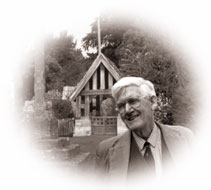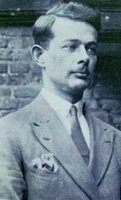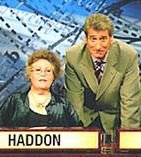Best children's books never forgotten
Also in today's blog
The Once and Future King
Penguin's book jacket mugs
Comment on happiness memoir
Are we reading more?
About seven-ish on Christmas morning, after we had spent half an hour reminiscing about Christmases past, I left Mr Bookworm reading in bed and came down to the kitchen to make a cup of tea, boot up the laptop and publish last week's blog.
Then, while he was still upstairs having a shower, I read
an article headed "Nurtured by nature: how Durrell and his animals shaped my childhood : Will Cohu explains why the best children's books are never forgotten."

Here's an extract -
"Perhaps it is only in childhood that books have any deep influence on our lives," wrote Graham Greene, a view informed by some pleasurably eclectic reading, including a passion for Marjorie Bowen's Italian romance, The Viper of Milan. I liked books about nature and animals - a favourite author was Fred Archer, the Cotswold farmer who, aged 55, collected his memories of working life in The Distant Scene and Under the Parish Lantern. Such writers were amateur scholars, amazed at life, who saw things as a child might. Even Fred Archer wrote about a 10-year-old's view of the adult world, stringing together gnarled anecdotes of adult behaviour that were the perfect balance to the explosions and rhapsodies of the others."
The Once and Future King
Will Cohu also mentioned T H White's The Goshawk, a book Mr Bookworm and our son might like, if they haven't already read it. There are 30 copies for sale at Abebooks, most of them considerably cheaper than the £40 being asked at Amazon. This is the book of which Lord Kennet wrote in the Sunday Times, "A reader who cannot tell a hawk from a handsaw may be swept along by the storm of emotion which blows between the man and his bird, and by the freedom and richness of the romantic treatment of the variations."

Thinking about T H White, reminded me of a passage in Alexander McCall Smith's novel 44 Scotland Street which someone lent to me last week and I enjoyed far more than his bestsellers set in Africa.
Here's the extract from page 220 -
"So Mother Teresa of Calcutta, with her weepy eyes and her lined face, was infinitely more beautiful than…? Than the current icons of feminine beauty? Than that woman who called herself Madonna (whoever she was)? Of course Mother Teresa was more beautiful - infinitely so. Only a culture with a thoroughly upside-down sense of values could think otherwise. And that, mused Domenica ruefully, is precisely the sort of culture we have become."
The reason why thinking about T H White reminded me of those lines is because I'm reliably informed that all White's books, including The Sword in the Stone, the first book in the The Once and Future King quartet, are out of print.
Could there be a more appalling example of an upside-down sense of values than the fact that while most British publishers are churning out volumes of ghosted celeb lit, copycat chick lit and the-mixture-as-before sagas, T H White is out of print?
Born in India in 1906, White started out as a schoolmaster but gave up that profession in 1936 in order to write full-time. The Sword in the Stone, inspired by Sir Thomas Malory's version of the King Arthur legends, was published when White was 32. Eventually he settled on Alderney, in the Channel Islands, his home until his early death. White's books were the inspiration for the Lerner and Loewe musical, Camelot, later made into a movie.
Penguin book jacket mugs
For a week before Christmas we looked at the parcel sent by one of our nearest and dearest and wondered what it could contain. I had removed the outer wrapping to reveal the inner wrapping paper with pictures of Pooh and Piglet and the text "For Christmas, for me? Oh, what could it be? I think I might have to shake it and see!"
But the shape and weight gave no clue to the contents. At breakfast on Christmas morning they were revealed as two of Penguin's 70th birthday mugs, The Invisible Man by H G Wells for Mr B and Jane Eyre by Charlotte Brontë for me.


There are 32 mugs and also coffee cups with saucers, tea towels, deck chairs and shopping bags.
Comment on happiness memoir
Last Sunday, one of the busiest people I know, the chairman of the RNA, emailed
"Really enjoyed your blog this morning. I tried to comment but it looks as if they won't accept it without a blogger account and I haven't got time to go through that rigmarole this morning. So here are my thoughts in case they're of interest."

"Good points about the misery market. Interesting that it seems to have moved out of fiction. No novelist would be allowed to get away with Smike and Tiny Tim and Paul Dombey and Little Em'ly these days. Too sentimental. Maybe we want the sentiment but can only accept it if these days if it comes with the authentication of personal experience.
Interesting too that these books all have villains who are truly vile. We may have got more sophisticated in one way but we do like our black hats and white hats. It puts the reader in the right.
I suppose the trouble with a happiness memoir would be the risk that we might start to like the writer only to find that they have a black - well a dodgy grey - hat in the end. Thank you for a stimulating blog. Happy Christmas Jenny Haddon"
Puzzled by Jenny's covering note, I asked a friend here in Spain to double check that comments were not accepted except from Blogger account holders. She confirmed that it was so. I'm sure Blogger have a good reason for this rule, but it must discourage many people from posting comments.
Is Jenny right about the risk of a happy memoirist turning out to be a bad or dubious person in the final chapters? I'd be prepared to chance it. By the way, don't miss her short story The Edward Lewis Gambit. If you have preconceived ideas about how romance writers write, it may startle you. [The picture shows Jenny with Jeremy Paxman when the RNA team was narrowly beaten by The Privy Council Office team in The Professionals series of University Challenge on UK TV last summer.]
Are we reading more?
"Read on if you've scanned any good books lately" was the heading on an interesting piece by Damien Whitworth this week. Here are extracts
"Between 20 and 25 per cent of books bought in Britain each year are purchased in December. In the weeks leading up to Christmas book sales rise to three times that of a mid-year week, according to Nielsen BookScan. The number of books we buy has steadily increased in the past few years to more than 200 million volumes, worth £1.6 billion. But are we actually reading more?
In total my Christmas haul adds up to 1,975 pages. On a good night I might read ten pages. Often the book doesn't even get opened, or if it does I have to re-read chunks to remind myself of the stuff I read the night before as my eyelids were fluttering shut. Embarrassing though it is to admit, I probably manage 30 pages a week of pure pleasure reading. At that rate I'll have finished my new books sometime in April - 2007.
Unlike Damien Whitworth, I read around 1,000 pages a week. But I watch very little TV and could easily live without it.
Stop Press
The Bookseller's December 23/30 issue arrived yesterday morning and I see that the Paperback Preview for April by Sarah Broadhurst now includes a section headed Misery with four titles, including one in which "A 25-year-old looks back on her life of neglect and abuse, her severe depression and her eventual recovery."
I used to look forward to the Paperback Previews as a source of titles for my To Buy or Borrow list. But as time goes on I find fewer and fewer titles worth noting. Not Sarah Broadhurst's fault. She can only reflect what is happening in the UK publishing industry which, even by middlebrow standards, is moving relentlessly downmarket.
